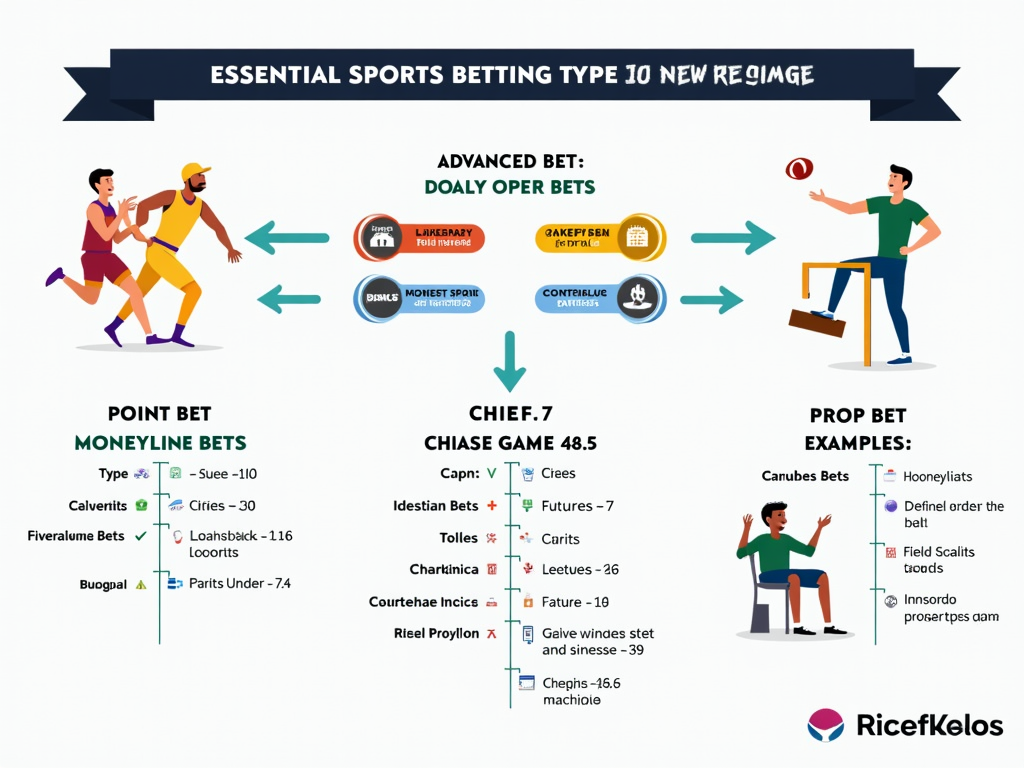Legal Sports Betting: A Regulated and Thriving Industry
Legal sports betting has evolved into a regulated, thriving industry generating $66 billion in revenue during 2023. The 2018 Supreme Court decision to overturn PASPA led to expanded consumer safeguards and official partnerships between sportsbooks and professional sports leagues.
Key Takeaways
- Legal sports betting exists in over 35 states plus Washington, D.C., operating under strict regulatory oversight with consumer protections.
- Modern sportsbooks deliver secure payment processing, responsible gaming tools, and professional customer support.
- Understanding odds formats and calculating potential payouts forms the foundation for smart betting decisions.
- Smart bankroll management limits bets to 1-3% of total bankroll per wager.
- Successful betting demands thorough research, including team analysis, injury reports, and market indicators.
The Evolution of Legal Betting
This transformation has created legitimate betting options protected by state regulations and industry standards. Licensed sportsbooks must meet rigorous security requirements for payment processing and data protection. Their platforms integrate responsible gaming features like deposit limits, time restrictions, and self-exclusion programs.
A Data-Driven Approach to Success
My experience shows that success requires a structured approach focused on research and disciplined money management. I analyze team statistics, monitor injury updates, and track line movements before placing bets. This methodical process helps identify value opportunities while minimizing emotional decisions.
Transparency and Support in Regulated Sportsbooks
The regulated environment brings transparency to odds and payouts. Licensed sportsbooks display clear terms and conditions, ensuring bettors understand potential returns and risks. Professional customer service teams address questions promptly through multiple communication channels.
Long-Term Strategy for Betting
By maintaining strict bankroll limits and conducting detailed pre-bet analysis, I make calculated decisions based on concrete data rather than gut feelings. This strategic method supports long-term sustainability in sports betting.
The Shift from Illegal to Legal Sports Betting in America
The American sports betting landscape changed dramatically in 2018 when the Supreme Court overturned PASPA (Professional and Amateur Sports Protection Act). This landmark decision paved the way for individual states to legalize and regulate sports betting. Today, sports betting has emerged as a legitimate entertainment option, with over 35 states plus Washington, D.C. offering legal betting operations.
The Growth of Legal Sports Betting
Legal sports betting has proven to be a significant economic driver. The commercial gaming industry’s remarkable performance generated $66 billion in revenue in 2023, showing the massive potential of this market. I’ve seen how regulated sports betting platforms have created safer gambling environments, complete with responsible gaming tools and transparent odds.
The shift from underground bookmaking to licensed sportsbooks has brought several key improvements:
- Enhanced consumer protection through strict regulatory oversight
- Secure payment processing and withdrawal methods
- Access to responsible gaming resources and self-exclusion programs
- Clear terms and conditions for all betting markets
- Professional customer support services
Historical Context and Evolution
Sports betting’s roots stretch back to ancient Rome, where citizens would wager on gladiatorial contests and chariot races. British culture embraced sports betting, particularly in horse racing, creating a framework that many modern betting systems still reference today.
The American journey from prohibition to regulation mirrors other industries that have successfully transitioned from illegal to legal status. Licensed sportsbooks now offer sophisticated mobile apps, live betting options, and various market types that were unimaginable in the days of underground bookmaking. States have implemented strict licensing requirements, ensuring operators maintain high standards of security and fairness while contributing to state revenues through taxation.
The current legal framework has created job opportunities, generated tax revenue for public programs, and provided sports fans with a regulated way to engage with their favorite games. Sports leagues, once opposed to betting, have embraced partnerships with sportsbooks, leading to enhanced game integrity monitoring and new revenue streams for professional sports.
Placing Your First Bet: The Basics Made Simple
Understanding Odds and Payouts
I’ve seen many first-time bettors get confused about how betting odds work, but it’s actually quite straightforward. When you start sports betting with solid fundamentals, you’ll find it easier to make informed decisions.
Bookmakers set the odds and handle all betting transactions. They include a fee called the ‘vig‘ or ‘juice‘ in their odds. For example, with standard -110 odds, you’d need to bet $110 to win $100 — that extra $10 is the bookmaker’s fee.
Calculating potential payouts doesn’t require complex math. Let’s break it down with a simple example: if you place a $10 bet at +200 odds, you’ll receive $30 back if you win. This includes your original $10 stake plus $20 in profit. It’s crucial to distinguish between your total return (stake + profit) and pure profit to set realistic expectations.
Choosing the Right Sportsbook
Your betting experience heavily depends on picking a trustworthy sportsbook. Licensed bookmakers offer several key benefits:
- Secure banking options for deposits and withdrawals
- Fair odds and transparent pricing
- Protection of your personal and financial information
- Clear terms and conditions
- Reliable customer support
- Guaranteed payouts when you win
I always recommend sticking with licensed sportsbooks because they’re regulated and must maintain strict standards. This gives you peace of mind knowing your money is safe and you’ll get paid when you win. Remember, a reputable sportsbook should display their licensing information clearly on their website.
Your focus should be on learning the basics instead of rushing to place bets. Take time to understand odds formats, calculate potential returns, and research the sportsbooks you’re considering. This foundation will serve you well as you develop your betting strategy.
Essential Betting Types Every Beginner Should Know
Popular Single-Game Wagers
I’ve found that getting started with sports betting is easier when you understand the basic bet types. A moneyline bet offers the simplest way to start betting, as you’re just picking who’ll win the game. For example, if you see the Lakers at -150, you’d need to bet $150 to win $100. On the flip side, a Celtics bet at +130 means a $100 bet would win you $130.
Point spread betting adds another layer by creating a handicap between teams. If the Chiefs are listed at -7 against the Bills +7, the Chiefs need to win by more than 7 points for your bet to pay out. The Bills can lose by up to 6 points, and you’d still win if you bet on them.
Over/Under (totals) betting shifts focus from winners to scoring. Instead of picking a team, you’re betting on whether the combined score will go over or under a set number. A total of 48.5 in football means you’re betting if both teams will score more or less than that amount together.
Advanced Betting Options
Parlays pack multiple bets into one ticket, boosting potential payouts but raising the stakes since every pick must win. Think of it like a chain – one broken link means the whole thing fails.
Futures betting lets you predict outcomes weeks or months ahead. This could mean picking next season’s champion or betting on who’ll win league MVP.
Prop bets focus on specific events within a game. These can range from how many touchdowns a quarterback will throw to whether the first score will be a field goal. They’re perfect for times when you have strong feelings about individual player performances rather than overall game results.
Remember, each bet type serves different strategies and risk levels. While moneylines might suit beginners best, understanding all options helps you make smarter choices as your betting experience grows.

Making Sense of Betting Odds
Betting odds might look like a jumble of numbers and symbols at first, but they’re actually quite straightforward once you break them down. I’ll show you how these different formats work and what they mean for your potential winnings.
Breaking Down Odds Formats
American odds are popular in the US and use plus and minus signs. When you see +150, it means a $100 bet would win you $150. A -200 indicates you’d need to bet $200 to win $100. These odds are crystal clear about your potential profit.
Decimal odds make calculating returns super simple. Just multiply your stake by the decimal number to find your total return. For example, with odds of 2.50, a $10 bet would return $25 (including your original stake).
Fractional odds, often used in the UK, show your profit relative to your stake. A 3/2 fraction means for every $2 you bet, you’ll profit $3 if you win.
Converting Odds to Probability
Here’s what you need to know about converting odds to probability:
- For positive American odds: 100 / (odds + 100) × 100
- For negative American odds: |odds| / (|odds| + 100) × 100
- For decimal odds: (1 / decimal odds) × 100
- For fractional odds: denominator / (numerator + denominator) × 100
Understanding the Bookmaker’s Margin
Understanding the bookmaker’s margin is key to smart betting. This built-in profit margin, sometimes called the “vig” or “juice”, is why the total implied probability of all possible outcomes usually exceeds 100%. For instance, in a two-way market, you might see both outcomes priced at -110, implying a probability of 52.4% each — totaling 104.8%.
I recommend checking out my complete sports betting guide for more detailed strategies on finding value bets despite these margins.
Remember, odds formats are just different ways of showing the same thing — your potential return and the implied probability of an outcome. By understanding these basics, you’re better equipped to spot good betting opportunities and calculate potential returns quickly.
Smart Money Management for Sports Bettors
Building Your Betting Foundation
Smart bankroll management can make or break your sports betting success. I recommend setting aside a dedicated bankroll — money you can afford to lose without impacting your daily life. This should be completely separate from your regular finances.
The flat betting approach has proven most reliable for beginners. I suggest betting consistent amounts between 1-3% of your total bankroll per wager. For example, with a $1,000 bankroll, each bet would be $10-30. This disciplined betting strategy helps protect your funds during losing streaks while maximizing potential profits.
For more experienced bettors, percentage staking offers flexibility by adjusting bet sizes as your bankroll changes. If you’re up 20%, your standard bet would increase proportionally. However, this requires careful tracking and discipline.
Tracking and Responsible Gaming
Keeping detailed records of every bet is crucial. I recommend logging:
- Date and type of bet
- Amount wagered and odds
- Result and profit/loss
- Notes on your decision-making process
This data helps identify which betting strategies work best and which sports or bet types you should avoid. It also prevents selective memory about your wins and losses.
Responsible betting means staying alert to warning signs of problem gambling:
- Chasing losses with bigger bets
- Betting money needed for bills or essentials
- Lying about betting activity
- Feeling stressed or anxious about bets
The National Council on Problem Gambling operates a 24/7 helpline (1-800-GAMBLER) for anyone struggling with gambling issues. There’s no shame in reaching out — getting help early prevents serious problems.
Setting firm limits on time and money spent betting is essential. I suggest using betting site tools to set deposit limits and taking regular breaks from betting activity. Success in sports betting requires treating it as entertainment first, with any profits being a bonus rather than expected income.
Research and Strategy Fundamentals
Performance Analysis Essentials
My years in sports betting have taught me that success starts with thorough team analysis. I focus on recent performance trends, examining how teams perform in different situations. Home and away records tell a crucial story — some teams dominate at home but struggle on the road. For instance, in the NBA, altitude factors at venues like Denver’s Ball Arena can significantly impact visiting teams’ performance.
Injury reports deserve special attention since a key player’s absence can dramatically shift a game’s dynamics. I track not just who’s injured, but also how teams have performed without specific players. This helps me spot valuable betting opportunities that others might miss.
Maximizing Value Through Market Analysis
Finding the best odds requires checking multiple sportsbooks — a practice known as line shopping. I’ve learned that even small differences in odds can significantly impact long-term profits. As an example, getting -110 instead of -115 on regular bets saves $5 per $100 wagered, which adds up substantially over time.
Here are key market indicators I monitor before placing bets:
- Line movement patterns that show where sharp money is going
- Opening and closing odds comparisons to spot significant shifts
- Public betting percentages to identify potential contrarian opportunities
- Weather forecasts for outdoor sports that affect game totals
Understanding basic statistics has proven invaluable in my sports betting strategy development. I pay attention to relevant stats like points per game, defensive efficiency, and head-to-head records. However, I don’t just look at raw numbers — I consider how these stats match up against specific opponents.
The sports betting market often reflects insider information through line movements. When I notice sudden odds shifts, especially in hours closer to game time, I take note. These changes frequently signal important information that hasn’t yet become public knowledge, such as undisclosed injuries or last-minute lineup changes.
My approach combines careful data analysis with disciplined bankroll management. I set specific unit sizes for bets and stick to them regardless of how confident I feel about a particular wager. This systematic approach helps maintain consistency and prevents emotional betting decisions.

Sources:
American Gaming Association – “State of the States 2023”
National Council on Problem Gambling – “Help & Treatment: National Helpline 1-800-522-4700”
Gambling Law US – “Federal Laws: Professional and Amateur Sports Protection Act (PASPA)”





